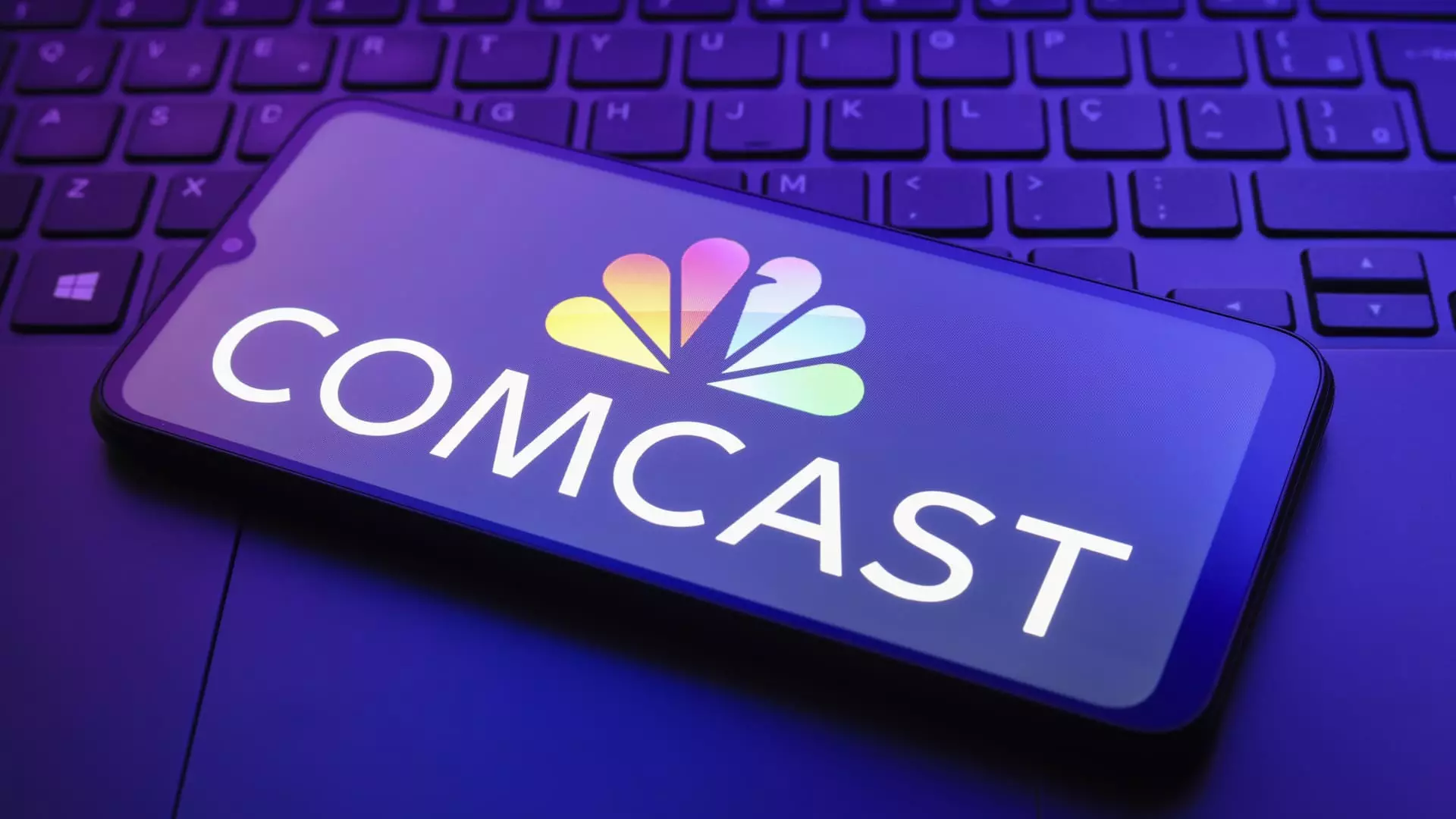In a significant shift within the advertising landscape, Comcast has introduced its new advertising platform named Universal Ads, aiming to simplify the process of purchasing ad space for smaller businesses. The company aspires to lure advertisers away from the dominant digital and social media platforms back to traditional television and its streaming adaptations. The announcement came right before the annual CES tech conference, underscoring Comcast’s commitment to innovation in advertising strategies. With partnerships with various media companies already in place, Universal Ads sets the stage for a transformative approach in how ad spots are sold on premium video content.
Comcast’s initiative seeks to bridge the gap between traditional media and emerging businesses that are often sidelined in the ad-buying process. By collaborating with an extensive list of partners—which includes major players like NBCUniversal, Roku, and Paramount—the platform promises advertisers access to a diverse range of outlets. Mark Marshall, the chairman of global advertising and partnerships for NBCUniversal, emphasized that the primary goal is to attract advertisers who have not previously engaged with their media offerings. This inclination towards inclusivity is timely; as many businesses seek alternatives to social platforms due to evolving market dynamics, Universal Ads appears poised to capture an untapped demographic.
The current landscape for buying ad time can often be convoluted, a hindrance particularly for small- to medium-sized businesses (SMBs). Comcast’s Universal Ads aims to remedy this by streamlining the purchase process to make it akin to the ease of buying ads on platforms like Meta or TikTok. James Rooke, president of Comcast Advertising, pointed out that the direct, uncomplicated transactions offered by these major tech companies create a benchmark that traditional media has struggled to meet. By leveraging its advanced ad tech via FreeWheel, Comcast is looking to transform the transactional experience, making it more straightforward and user-friendly.
A notable trend has been the growing desire amongst advertisers to diversify their spending away from the digital behemoths that currently dominate the market. Despite seeing tremendous success, brands express discomfort in relying heavily on a handful of tech platforms. This yearning for diversification has created a ripe opportunity for Comcast to step in with Universal Ads. The platform’s design dovetails with the intent to attract these advertisers who wish for broader reach, yet find themselves constrained by existing digital channels.
Comcast’s efforts come at a time when the advertising sector is undergoing radical changes. Although TV advertising—especially in live sporting contexts—remains a key area for big advertisers, there is an observable trend towards digital platforms gaining significant share in ad revenue. GroupM forecasts that traditional television advertising will see only modest growth, while digital advertising revenues will ascend rapidly. The allure of massive platforms like YouTube and TikTok has been their ability to attract millions of advertisers, a stark contrast to NBCUniversal’s more limited scale in comparison.
Universal Ads not only focuses on attracting larger advertisers but is also very much geared towards empowering small- and medium-sized enterprises. By presenting a collective front with other media partners, Comcast aims to mitigate the challenges smaller advertisers face when trying to navigate multiple advertising channels. This collaboration is essential in leveling the playing field, giving SMBs access to premium ad spaces that were often beyond their reach. According to industry experts, this initiative resonates well with the pressing need for greater flexibility and efficiency in ad buying.
Universal Ads signifies a pivotal moment in the advertising sphere, particularly for smaller businesses eager to expand their reach. By simplifying the ad-buying experience and promoting collaboration across various media outlets, Comcast could very well alter the current advertising paradigm. As advertisers continue to seek avenues outside traditional channels, the impending success of Universal Ads may redefine the competitive landscape, providing a viable alternative to the overwhelming dominance of social media platforms. If executed effectively, Comcast’s initiative could harness new demand, enriching the advertising ecosystem for all stakeholders involved.

